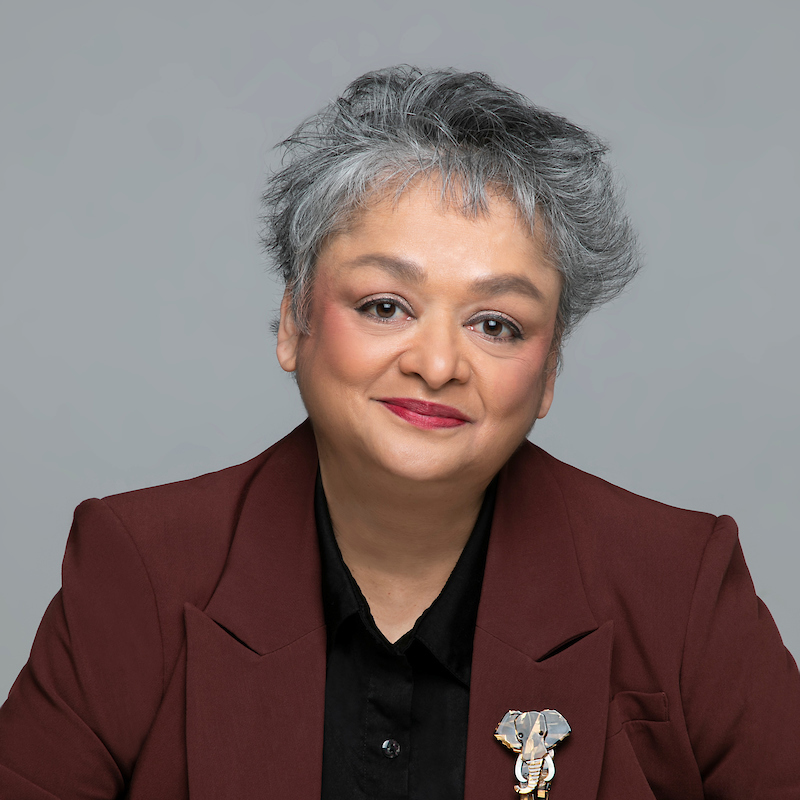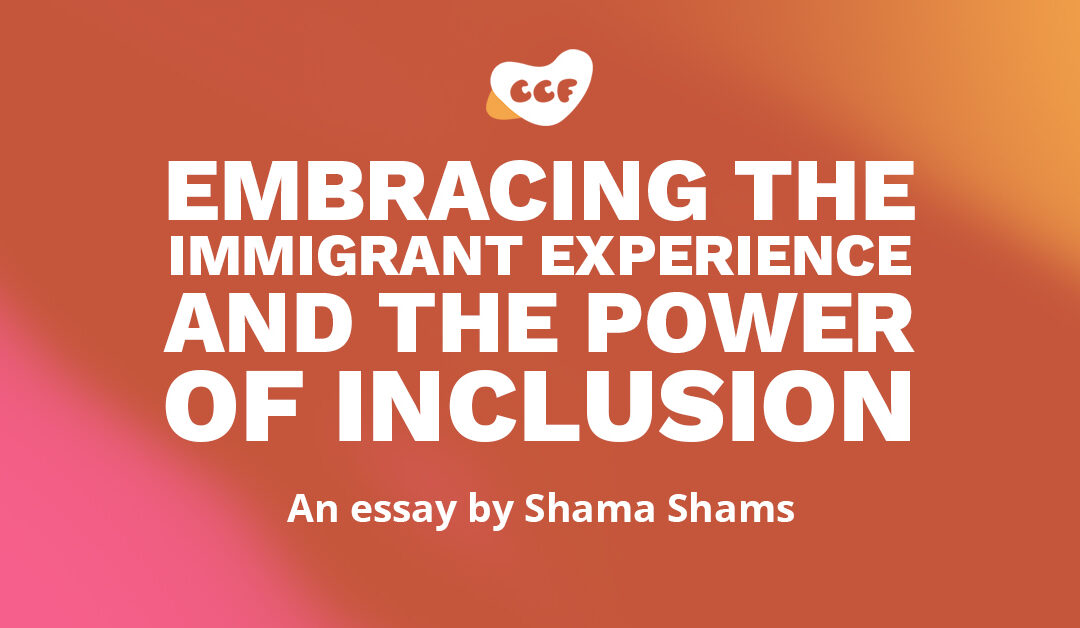By Shama Shams, CFRE, a nonprofit executive, writer, and storyteller with over 20 years of experience in fundraising and leadership
The question I grapple with now is not new but remains painfully unresolved: When does someone truly become American? Is it a matter of time? Generations? Sacrifice? How many years must a person live here, and how many contributions must they make before their “Americanness” is no longer questioned?
At seventeen, I stood before a judge, took a citizenship test, and pledged my allegiance to the United States, becoming a naturalized American. This moment was the culmination of years spent in the country I had called home since I was ten.
Fast forward to the fall of 1990, and I was in my final year of college in Atlanta, Georgia, as Operation Desert Shield transitioned into Operation Desert Storm. Like many peers, I was driven and focused on securing my future. But unlike many of them, I faced an increasing wave of hostility. Despite living in the United States for over twelve years and earning citizenship, I was still seen as “other”—foreign, different.
This rising tide of hostility didn’t just affect me as an individual; it highlighted a harsh reality for many immigrants: no matter how long you’ve been in the country, no matter how many steps you’ve taken to be a part of the fabric of this nation, you can still be treated as an outsider. It was a painful reminder that in times of political turmoil or war, the experience of otherness can intensify, and the larger narratives of fear and suspicion can overshadow one’s identity.
At the time, chants of “Go home, towel head!” pierced the air, and radios blared songs like “Bomb Iran,” a cruel anthem of mockery and prejudice.
As a young woman trying to find her place in the world, the sting of such blatant hatred was inescapable. My American citizenship, my years of education, my commitment to this country—none of it seemed to matter. To them, my name, face, and perceived “otherness” negated my belonging.
Fast forward to 2001. Another wave of Islamophobia swept through the nation following the September 11th attacks. I lived in Texas, and was married and raising a family by then. Yet, the refrain remained unchanged. Strangers, neighbors, and even coworkers felt entitled to tell me, “Go home,” as if I hadn’t already chosen this place to be my home.
I am as American as apple pie, as the saying goes. I grew up studying American history, pledging allegiance to the flag, and cheering at football games. I love the freedoms this country offers and the dreams it dares its citizens to pursue. But those chants of “Go home” have always lingered in the background, a persistent echo of rejection that reminds me how fragile my claim to this identity seems in the eyes of others.
The question I grapple with now is not new but remains painfully unresolved: When does someone truly become American? Is it a matter of time? Generations? Sacrifice? How many years must a person live here, and how many contributions must they make before their “Americanness” is no longer questioned?
Navigating through each new presidential administration brings with it not just shifts in policies and cultural tones but also an unsettling possibility: a resurgence of intolerance and hatred that can profoundly impact communities.
As someone deeply engaged in advocacy and empowerment, I lead the development and marketing efforts at a legacy nonprofit in Seattle committed to dismantling systemic racism and fostering opportunities for marginalized groups, mainly through employment initiatives.
Fear, anger, and exclusion seem to cycle endlessly, like seasons. But unlike natural seasons, this is one we could break if we chose to.
Ironically, while my work revolves around breaking down barriers, the reality of “otherness” remains a personal and professional challenge. Despite being fully employed and contributing significantly, the specter of xenophobia can loom large, especially during transitions in leadership. It’s a stark contrast: while I work to fund and raise awareness for those facing systemic injustices, I confront these barriers in my journey.
This dichotomy is palpable. For those of European heritage, there often exists a sense of belonging that eludes many non-white individuals, irrespective of their personal or familial histories deeply rooted in America. This reality underscores the ongoing struggle for inclusion and equity, a personal and collective journey in pursuing a more just society.
Fear, anger, and exclusion seem to cycle endlessly, like seasons. But unlike natural seasons, this is one we could break if we chose to.
Being American should not be conditional, nor should it require proving loyalty through endless acts of patriotism. Being American should be about embracing the diversity of those who call this country home, not reducing citizenship to a hierarchy of worthiness based on appearance, name, or ancestry.
One of the highest forms of patriotism is unwavering dedication to serving others, a commitment especially embodied by the nonprofit sector. This sector steps in where government programs falter or fail, providing vital services to those left behind or ignored by state resources.
Essentially, nonprofits serve as a safety net for individuals the American government has forgotten or neglected.
Within the nonprofit sector, countless immigrants work relentlessly to support those often overlooked and marginalized. Despite facing their own challenges as immigrants, many dedicate their time and efforts to uplifting others who share similar struggles. These individuals embody the spirit of service, but their contributions extend far beyond their work—they carry rich, lived experiences that shape their understanding of justice, equity, and resilience.
In recognizing their efforts, we must also acknowledge the deeper layers of their experiences. These individuals have navigated their struggles with belonging, identity, and opportunity. By creating space for them to have a voice in decision-making processes, we honor their journeys and affirm the collective strength of marginalized communities. Elevating their perspectives isn’t just an act of inclusion but a commitment to upholding the core values of equity and justice. It is a reminder that the heart of service lies in amplifying the voices of those who have often been silenced.
Today, I hold onto hope—not for myself, but for my daughters and their generation. I hope their Americanness will not be questioned, their belonging will not be conditional, and the “Go home” echoes will no longer haunt their lives.
What will it take for this to happen?
Perhaps the better question is, what are we willing to do to make it happen?
America’s strength has always been its diversity, and its promise lies in the ideals of inclusion and equality. It’s time we, as a nation, started living up to those ideals—beyond simple words. We begin by creating an environment that is inclusive of all.

Shama Shams
Sanjukta (Shama) Shams, CFRE (she/her) is a nonprofit executive, author, speaker, and podcast host with over 20 years of experience in fundraising, storytelling, and leadership. As Chief Impact Officer at Uplift Northwest, she champions workforce development and community empowerment. She teaches nonprofit storytelling and fundraising at Seattle-area colleges and hosts From Passion to Purpose, amplifying nonprofit leaders’ voices. Follow Shama on LinkedIn.
Discover more from CCF
Subscribe to get the latest posts sent to your email.


Shama, you write beautifully.
Your personal reflection of the imposed sense of non inclusion in a supposedly inclusive society betrays the very foundation of the promise of Americanism.
One should not feel the need to provide evidence of one’s loyalty and fidelity to the outlandish cries of bigotry. Being fully an American precludes bigotry.
Your article beautifully illustrates the incredible power that bigotry and prejudice have over an already fragile psyche on an immigrant. Especially one of non white decent.
This is eloquent advocacy at its best, weaving together a complex narrative that incudes national policy and personal experience. It’s a challenge posed to all. What are we willing to do? Will we stand up for equity and inclusion for ourselves and others? Thank you Shama Shams!
This is one of the best articles I’ve read in a while. Shared in LinkedIn. Thank you!